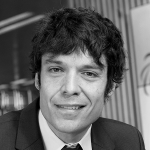Lucas Sigman, director general of Chemo, a leader in the research, development and manufacture of finished dosage forms and the active pharmaceutical ingredient arm of Insud Pharma, highlights the 40 years of expertise of the company in manufacturing for generic players globally and discusses how the recent EUR 30 million investment in the two manufacturing sites producing injectables makes the company stand out as the partner of choice for their customers.
It is an exciting time for the group, with the rebranding and structural changes dividing the group into Chemo, Exeltis and mAbxience. What is the rational for such changes at this moment in time?
Insud Pharma has had three business units for the past five years. Chemo is the industrial unit manufacturing APIs and finished products. The second unit is Exeltis, a branded generic division focusing on women’s health and, last but not least, mAbxience which is the biotech arm of the group.
Insud is not a made-up name, it is the corporate name of our entire business in Argentina. We do not only deal with pharmaceuticals, but we also produce films and publish books. Indeed, the group strengthened their activities in the pharmaceutical industry and expanded to a diversity of areas, including agribusiness, cultural industries, and nature and design, which today form the business ecosystem we work in.
The choice was, therefore, also a cultural one. In brief, Insud Pharma is a division of the umbrella Insud Group that we have in Argentina.
In June 2017, you made an investment of 30 million Euros into two manufacturing plants for injectables. What is the strategic thinking behind such an investment now?
We believed that there was a need for us to enter new technologies and that injectables is a very interesting segment because of its complexity and extremely needs of high quality. Therefore, we believe it will bring us the competitive advantages that we deemed necessary to stay in Europe to build an even stronger and remarkable footprint.
[Featured_in]
Additionally, the portfolio of injectables is even more attractive since it has the potential to develop key generic medicines in the next five to six years.
Growth hormones is a very important segment for us, both in APIs and formulations and this is linked to our decision to come up with these two new sites.
You have other manufacturing plants in Argentina, Italy, China, India. How would you describe the relevance of the Spanish plants on a global level?
Spain is a natural place for us to be. Our company started in this country in 1977. Today we have state-of-the-art manufacturing plants: Liconsa, Universal Farma, León Farma and Farmalan. They provide medicines all around the world.
What makes Spain a great place to base your manufacturing operations?
The Spanish know-how and the culture present in the field of manufacturing… I truly believe that what really makes our difference is the talent pool and highly-skilled workforce available in Spain.
How has Chemo been adapting to the manufacturing needs of your customers?
We have had a huge industrial focus on improving our operations. We are perfectly able to find the needed tools to adapt to our client needs. We have been good at it and we realised that renovation and rebranding is key to success. In terms of innovation, for instance, we have been very successful at launching some highly complex products – one example is an inhaler that we launched a two years ago, which is also the only generic available in Europe. Another example is our vaginal ring, which is made up of a very complex technology for which we produced a generic version and it is important to say that we are the first ones producing it in the world.
In fact, in 2015 we made it to the PROFARMA ranking in the A group (very good) for qualifying as one of the most innovative companies in Spain. PROFARMA, which stands for promotion of competitiveness in the pharmaceutical industry, is a joint program laid down by the Ministry of Industry, Energy and Tourism, along with the Ministry of Economy and Competitiveness and the Ministry of Health, Social Services and Equality. It was approved by the Delegate Commission of the central government on May 23, 2013, for a period of four years (2013-2016). We are very proud of this achievement and aim to continue towards this direction.
[related_story]
Which markets are driving your growth?
Latin America is a very important region for our exports. We are also currently significantly investing in R&D in the US. I would say we do not necessarily choose our markets solely on financial performance, but rather position ourselves in markets, that we feel close to our own culture.
What do you identify as key trends in pharmaceutical outsourcing and where do you see your competition coming from?
The pharmaceutical outsourcing landscape has always been competitive and will continue to be. I believe it is fundamental to have good regulatory files, to be cost-competitive, on time and have a good API sourcing as with China and India being the main global API producers the industry is becoming fierce.
How do you differentiate yourselves from the competition?
We are very competitive, and we have many products that some of our competitors do not have that makes us quite unique in this regard.
We are seeing a strong emergence of process automatization. How are technologies changing the rule of the game?
I think it changed the rule of the game some time ago. To be competitive and to remain a leading player in the market, one needs to have effective and ever faster machines as well as a type of equipment always ahead of competition.







